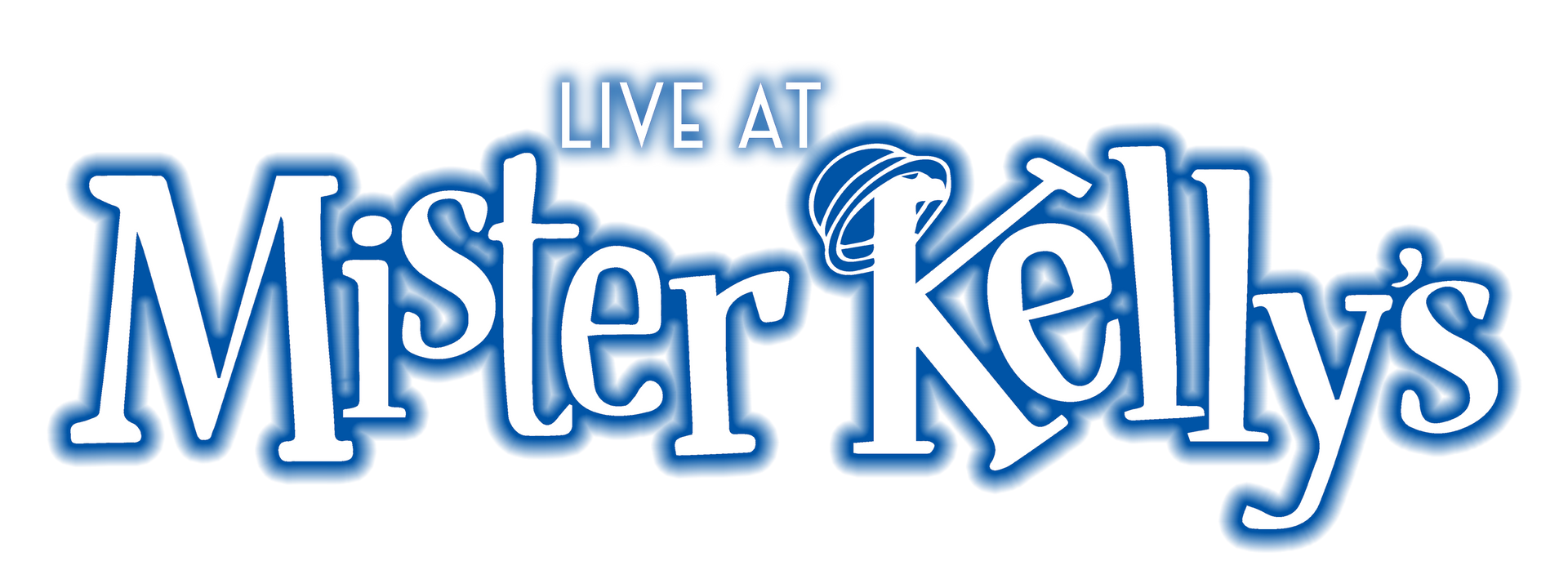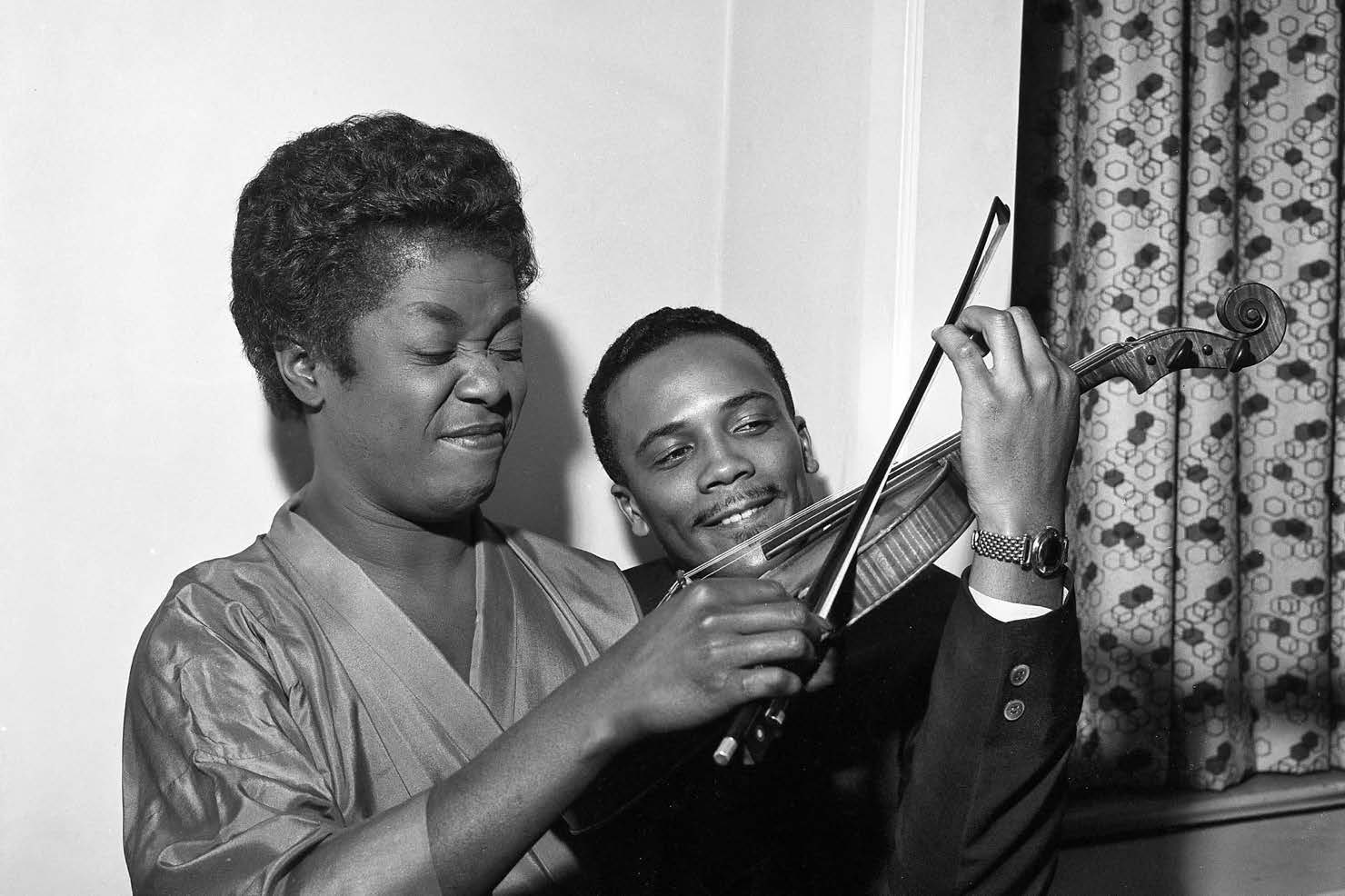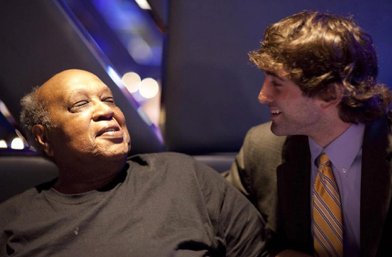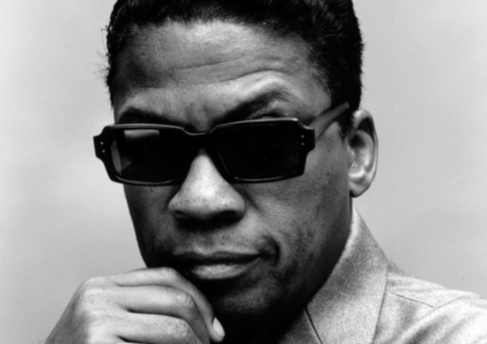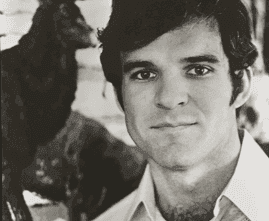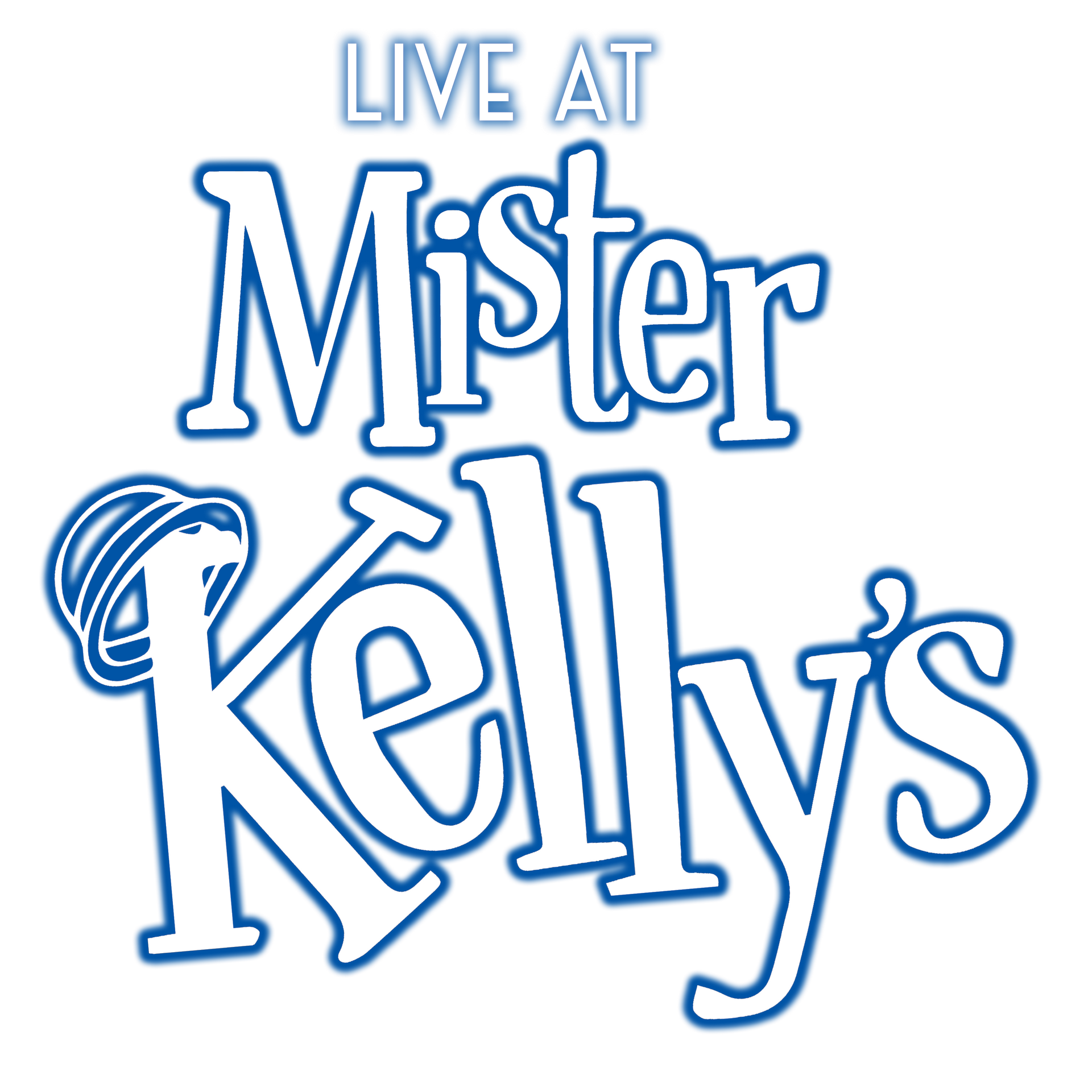Tom Dreesen Remembers Everything!
- By David Marienthal and Tory Foster
- •
- 15 May, 2017
- •
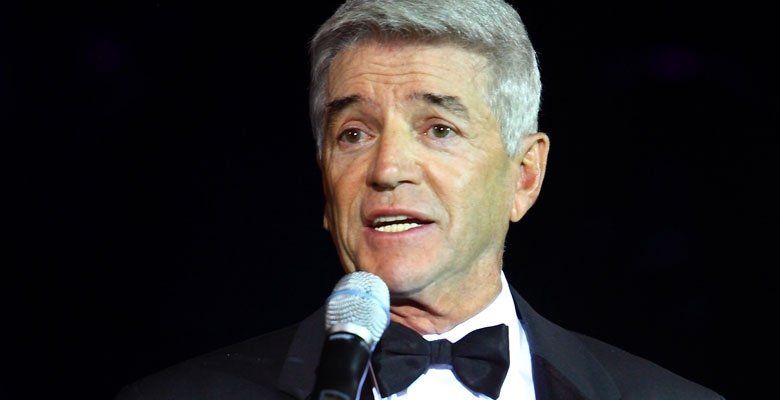
Chicago Heights, South Side. It’s the fourth time comedians Tim Reid and Tom Dreesen have gone on stage as a duo. How does it go? Well, they realize this isn’t going to be easy when a guy from the audience puts a lit cigarette out on Tim’s face after the show, then tries to beat the hell out of Tom, who’d boxed while he was in the service— but the guy outweighs him by 100 lbs. Later, at the University of Illinois in the winter, another member of the audience goes outside and packs and ice-ball, comes back in, throws it on stage, hitting Tom in the face.

Why all the face smashing? Well, it wasn’t because they weren’t funny. It’s just that Tim & Tom’s act was a shock to America just by existing. In those days, 1969, 1970, 1971, you rarely saw a black and a white guy walking down the street together, let alone sharing a stage as the first black/white comedy duo. There were always a few people on both sides of the aisle who objected to interracial friendship. Tim, who was black, was always in danger of being dubbed an “Uncle Tom” by the black people in this contingent, and then there’d be the white racist types who would attack Tom, who was white, for being a “n*****-lover.” The reality was that they were well ahead of their time.

Tom Dreesen, groundbreaker, team-member, solo performer, motivational speaker and all-round self-made man, is a longtime friend of the Marienthal family. He has had a top career in film, TV, and on stage, performing multiple times at Kelly’s and opening for Frank Sinatra for many years. I highly recommend his book “Tim & Tom: An American Comedy in Black and White,” and for those who have read it, he was generous enough to give me an update, with a few stories that aren’t in the book. I was thrilled to have the chance to sit down for a documentary interview.
The Road to Kelly’s
In spite of the opposition, the majority of the people who saw Tim and Tom liked them. So the duo worked those kinds of clubs and finally worked their way on to the Playboy Circuit, and with seventeen clubs and two resorts, they were doing 4 and 5 shows a night. “Up in the penthouse down in the playroom,” Tom says, “penthouse, playroom, we went back and forth. So our timing became exact. They put us on the whole circuit. But still, we wanted to work Mister Kelly’s. Everybody wanted to work Mister Kelly’s, you know, because, you get Mister Kelly’s you made the big time.”
How did they finally achieve their goal? “We were down in the New Orleans Playboy Club and the girl in the lounge singing came to see our show and she said ‘you guys are funny, I’ll tell my manager about you’ and she showed us his card, Lee Magid, and she said he manages Della Reese. So I sent him some material. He said “Della’s gonna open at Mister Kelly’s and I want you to open her. I said I don’t know, we tried to get in there and couldn’t do it. He said, “it’s my package. It’s my show. I’ve never seen you, but I trust that singer, and she said you’re very funny.” So we came in and we opened.”
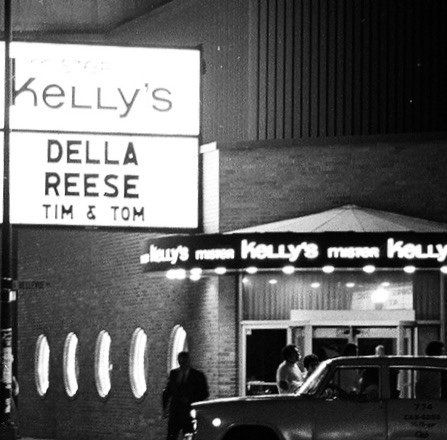
Becoming a Star
Their big debut was a breakthrough performance. “Just to say-- to put on your resume ‘I performed at Mister Kelly’s…’ All of Chicago, and outside of Chicago, everybody came there. It was THE supper club,” Tom says. “There were no comedy clubs in those days. So this was the place where people came, they’d valet their car and come in to have dinner and see a show.”
But you weren’t really a star unless they liked you. Good reviews were crucial. “We got great reviews there at Mister Kelly’s,” Tom continues, “There were only about five big papers then, so couple of good reviews could really do it for you. One of them was from Sam Lesner, who said we were the ‘café comedy delights of the year. Bring them back.’ Another said ‘To watch Tim and Tom perform is like a masterful ping pong match: Bingadabingadabingadabing.’ And I credit the Playboy Clubs for giving us so many shows where our timing got sharp.”
“In those days we were new and we were raw and we were eager and enthusiastic, and again, to be at Mister Kelly’s, to see your name on the marquis at Mister Kelly’s…I can’t tell you how many times when I was struggling in my life— I had a wife and three kids and I was going from agent to agent begging for work, you know, and I’d walk by the Marquis at Mister Kelly’s and see all the big stars, I’d dream that maybe one day my name would be on that Marquis. And to finally see that…incredible!”
“It was special for us to walk out on stage at Mister Kelly’s. I remember the Maitre’d was a guy named Monroe. Tim and I worked every hard and tough club in the south side and all over the country. We’d dress in a car or a basement somewhere in our stage clothes. But we came to Mister Kelly’s and there’s Monroe dressed in a tuxedo, saying ‘let me show you to your dressing room’ Oh boy, we got a dressing room! It was just the bigtime.”
Before Kelly’s
Tom is one of the few stars who actually worked for the Marienthal family long before his performance career started. “I caddied for Oscar at Ravisloe Country Club as a little boy,” he recalls, “But see, I didn’t know him as ‘Oscar,’ we called him Mister Marienthal. As caddies it was always ‘Mister Epstein,’ ‘Mister Marienthal,’ ‘Mister Goodman.’ I never knew their first names. But he was a nice guy and a good tipper (Caddies always remember those things), and very respectful to me. I was a little boy. I had holes in my shoes. I had eight brothers and sisters. We lived in a rat and roach-infested shack. Five of us slept in one bed. We had no bathtub, no shower, no hot water. He treated me like a young man, and I remember that and I respect him for it.
“Before I ever performed in the room at Mister Kelly’s I would come down there and sneak in the back if I could. I’d wait ‘til the show got started, work my way to the bar, and act like I just came to see if anybody was in there, and try to catch the performer. Especially comedians. Because if you want to become a brain surgeon you wouldn’t just study brain surgery, you watch the brain surgeon operate.
“I remember one time Mort Sahl was performing at Mister Kelly’s and I snuck back stage and knocked on the door. It was Mort all by himself. I said ‘My name is Tom Dresden and I’m a new comedian.’ And he talked to me for two hours before his own show. I walked out of Mister Kelly’s and I never forgot how great that made me feel. And I saw him years later and thanked him profusely. He didn’t remember, but I never forgot it. I don’t have a degree from academia but I got a doctorate from the streets. So I admire when somebody has chutzpah and comes up to me. I sit them down and say ‘What can I help you with?’ I like that Chutzpah. That’s a word I learned from Ravisloe Country Club.”
Returning to Kelly’s, Solo
“When the comedy team split up and then I came back here to Mister Kelly’s, I was really nervous because I was afraid that the press would say ‘Tom Dreesen is really nothing without Tim Reid.’ To get to the stage you go down to the kitchen and there was a black cook called Cleveland and we called him Cleve. Now this is my debut at Mister Kelly’s as a solo, and I’m pacing, and I look over at him. He’d just come out of the washroom and going back into the kitchen. I said ‘Hey!’ He said ‘What?’ I said ‘Did you wash your hands? In my neighborhood they teach us to wash our hands after we pee.’ And he said ‘In my neighborhood they teach us not to pee on your hands.’ And I started laughing, and I went on stage still laughing at him. And it’s something that never left me after that time. When you walk out on stage laughing, the audience laughs with you.”
Last of its Kind
Tom has vivid memories of the feeling of the club, and what it meant to people. “Once you came into Mister Kelly’s and Monroe met you at the door, and the waiters and waitresses were so professional and the food and the service were so good, that’s when you knew you were in a first class place. That’s what Mister Kelly’s really was: a first class nightclub operation. Maybe one of the last of its kind.
“What started pushing places like Mister Kelly’s out was when the Mill Run Theater opened up on the north side of Chicago, and these theaters where you could fit 25,000 people in. You didn’t have to valet park, you could just park in the parking lot, and for $35 you could see Sammy Davis Jr. At Mister Kelly’s, with the dinner and tips, it would cost a lot more. So the theaters in the round helped put Mister Kelly’s out of business.
“There was an aura of elegance, but there was also a comfortableness. Monroe knew the customers’ names when they walked in the door. How special to walk into one of those places and have the maitre’d know your name.”
Tom Dreesen is still performing, and I caught his show at the Laugh Factory in L.A. before our interview. It was quick, biting and as hilarious as it has ever been, and it was fun watching him get accosted by a group of five gorgeous young women after the show who wanted to take selfies with him. In addition to his continued acting and stand-up, he is adapting his book for the big screen, and doing motivational speaking at corporate events. The guy is a dynamo, and I couldn’t be happier to have him involved in our project as a subject, a historical consultant, and a great friend of the family.
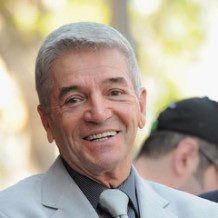
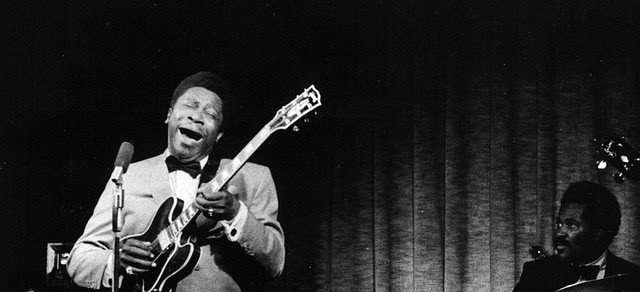
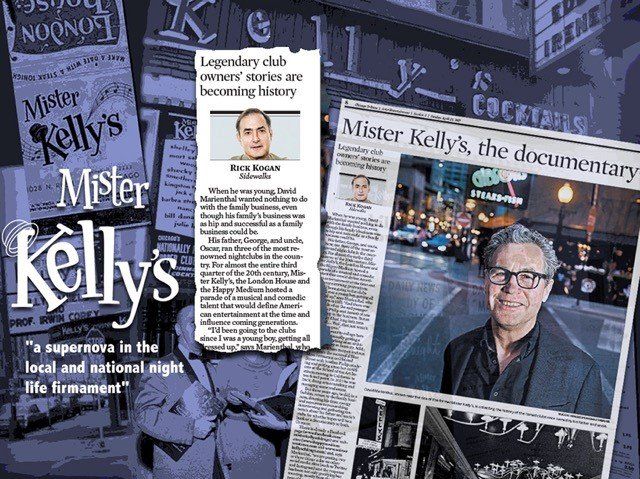
When he was young, David Marienthal wanted nothing to do with the family business, even though his family's business was as hip and successful as a family business could be.
His father, George, and uncle, Oscar, ran three of the most renowned nightclubs in the country. For almost the entire third quarter of the 20th century, Mister Kelly's, the London House and the Happy Medium hosted a parade of a musical and comedic talent that would define American entertainment at the time and influence coming generations.
"I'd been going to the clubs since I was a young boy, getting all dressed up," says Marienthal, who was born in 1951. "And there was some talk of us (he and younger brothers Philip and James) of one day getting in the business. But as a teenager I had long hair, torn jeans and …. Well, that just wasn't going to happen."
So off he went to college here and there, eventually getting a degree and working as an architect and builder in Sante Fe, N.M.; coming back here to open and run for 17 years the successful Blue Mesa restaurant on Halsted Street with brother Philip; studying and getting a teacher certificate at the School of the Art Institute; moving to California to teach and paint. In 2010 he was back, doing arts consulting and managing some real estate.
But three years ago, he did, in a fashion, return to the family business, devoting his time, energy and resources to researching, interviewing and gathering materials about his father and uncle's clubs for what he hopes will be a book or a documentary or both. Or more.
There is already a Facebook page ( www.facebook.com/misterkellyschicago ) and websites ( www.happymediumventures.com and www.misterkellyschicago.com ) and, says Marienthal, "we are posting two or three things a day on other social media sites (such as Twitter and Instagram) and the response has been not only gratifying but amazing, mostly from the 18-35 year old crowd."
This is how he puts a possible TV series — already with a script being pitched to producers — on his website:
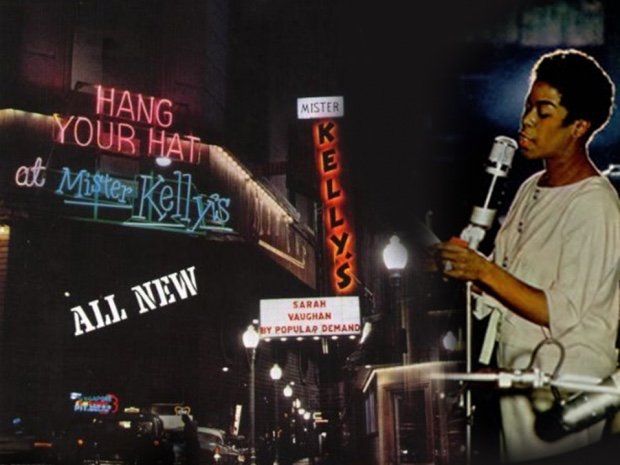
Join us to support the legacy of Mister Kelly's and the documentary film being produced by David Marienthal with WTTW Chicago Public Media, directed by Philip Koch.
This two-act concert features Kimberly Gordon, Sophie Grimm, Lynne Jordan, Frieda Lee, LaShera Moore, Daryl Nitz, Jeannie Tanner, and Ellen Winters. Musical direction by Andrew Blendermann, with Joe Policastro on bass, Phil Gratteau on drums. Special guest performance by a Chicago high school student protege from ChiArts.
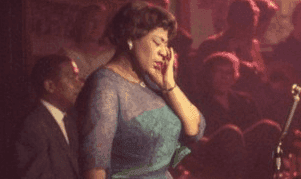
Happy Medium Ventures and Daryl Nitz Entertainment present:
Ella Live at Mister Kelly's: a benefit performance and preview for the documentary film, “Mister Kelly’s: Wasn’t It a Time?”
Monday, January 29, 2018
City Winery Chicago at 1200 W. Randolph Street, Chicago, IL 60607
$25-$40
For tickets go to Ella at Mister Kelly’s
Ella Live at Mr. Kelly's
On August 10, 1958, Ella Fitzgerald recorded her “Live at Mister Kelly’s” LP. In 2007 the concert was remastered and re-released in its entirety, including the early and late sets. This Ella centennial celebration concert presents the entire concert, without song duplication, of both sets. Featuring such songs as "Nice Work If You Can Get It," "The Lady Is a Tramp," "Summertime," "Witchcraft," "Come Rain or Come Shine," "Stardust," and many more from the classic American songbook of Gershwin, Rodgers & Hart, Porter, and others. Featuring Sophie Grimm, Lynne Jordan, Frieda Lee, Liz Mandeville, LaShera Moore, Daryl Nitz, Alina Taber, and Ellen Winters. Musical direction by Andrew Blendermann, with Joe Policastro on bass, Phil Gratteau on drums.
Mister Kelly’s: Wasn’t It a Time
Mister Kelly’s Once called a “supernova in the local and national night life firmament,” the legendary Mister Kelly’s illuminated legendary Chicago’s Rush Street, and the entire country, by launching talent like Barbra Streisand, Woody Allen, Bette Midler, Herbie Hancock, and Richard Pryor. It’s visionary owners George and Oscar Marienthal smashed color and gender barriers to put fresh, irreverent voices on stage and transform entertainment, as America knew it in the 50s, 60s, and ’70s.
Now, with the club long gone, and its star talent reaching its golden years, George’s son David, goes on a quest to collect the memories of the clubs before they are lost. Celebrity interviews now include Bob Newhart, the Smothers Brothers, Dick Gregory, Lainie Kazan, Dick Cavett, Shecky Greene and Ramsey Lewis. Interviews with dozens of local musicians, staff, family, and patrons provide a delightful balance with engaging stories, rich with vintage detail. Discussions are underway to interview Woody Allen, Lilly Tomlin, Bette Midler, Barbara Streisand, Steve Martin and others.
The film will portray through interviews, live footage, photos, music, and song, the most beloved and famous talent of our time at the decisive moments when they showed up, dug deep, and broke in. How do you change the world with a laugh and a song? Find out in a film that documents the rise and fall of one of American entertainment's great proving grounds.
Check out the hot sizzle reel and read Rick Kogan’s story in the Chicago Tribune and the links below for more about this exciting new film.
• Chicago Tribune Story: http://trib.in/2pZT07H
• Website: http://www.misterkellyschicago.com
• Facebook : https://www.facebook.com/misterkellyschicago
Happy Medium Ventures is the leading curator and steward of legendary Chicago nightlife venues, London House, Mister Kelly’s, the Happy Medium, and the Rush Street scene, from 1946-1970’s; the epicenter of Chicago’s entertainment scene. Today, Happy Medium Ventures is reviving this bygone era for a new generation of fans through an unprecedented collection of photos, recordings, press clipping. First-person interviews include key players in the Rush Street scene — from celebrity performers at London House, Mister Kelly’s and other Rush Street venues, to the employees behind the scenes, patrons of the nightspots, family and friends. Happy Medium Ventures aims to capture the fun and excitement through a documentary film, a new TV series, vibrant social media and other original content about this captivating chapter of Chicago history.
Daryl Nitz Entertainment is an event-concert production company specializing in shows that celebrate cultural anniversaries and historical recreations. Operating since 2004, with such show as “Judy at Carnegie,” “Voices of Chicago,” “Ladies Sing the Blues: a centennial birthday concert for Billie Holiday,” “It Was a Very Good Year: a centennial birthday concert for Frank Sinatra,” “Above Us Only Sky: John Lennon at 75,” “That’s Amore: a Dean Martin centennial celebration” and many more.
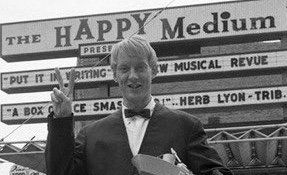
The
Mister Kelly’s team is overwhelmed by the incredibly talented and generous
people that we have met, while creating our archive of the Marienthal Brother’s
legendary nightlife empire. From colorful Rush St. regulars to famous
performers, and everyone in-between, it has been a thrill. One of the most exciting encounters has been
working with the renowned photographer, Art Shay. At the age of 95, Art is truly a legend in
his own time.
Shay began his career as a writer and journalist, but after showing a great eye for capturing images, soon transitioned into a career as a photographer. Based out of Chicago, he became one the nation premier photographers, working for major publications such as Life, Time, and Sport Illustrated. Art Shay photographed everything, from historic moments (1968 Democratic Convention) and iconic personalities (Muhammad Ali, The Rat Pack, President Kennedy), to street photography that captured the everyday life of average Americans. In the process he became one of the most celebrated artists of his medium and a Chicago legend.
In light of this, we were honored when Mr. Shay was kind enough to donate one of his brilliant works to our project recently. The print is a wonderful slice of Chicago’s Rush Street from the 1960s. The photo was taken outside of The Happy Medium and features actor Tom Williams dressed as a child, holding a toy boat.
Why is a grown man dressed as a child? Why a toy boat? Well, this can be explained. Tom Williams was part of was a comic review, produced by the Marienthal Brothers, called Put it In Writing . In the political satire, Williams plays America’s youngest president (an obvious nod to the newly elected JFK), who still has some childlike features. Put it in Writing would become the biggest play to originate at The Happy Medium and, after a long run in Chicago, it eventually made its way to New York for an off-Broadway production.
We are humbled to receive this generous gift from such a preeminent artist. The photo is a brilliant image of mid-century Chicago history, from one of the men who documented it best. The photo will be cherished and used in our mission to record this unique piece of Chicago and American history. We wish to give a heartfelt thank you to our friend Art Shay, who contributed this beautiful photo to the Mister Kelly’s archive.
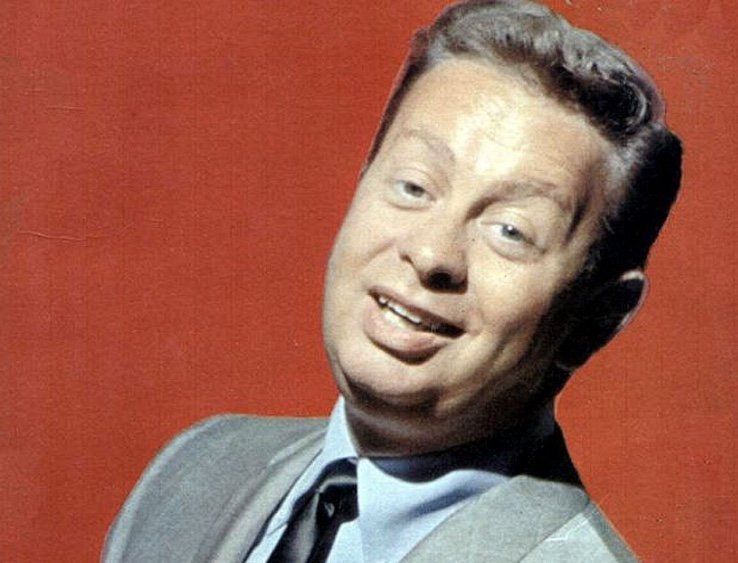
Guest Blogger Sam Fazio is a popular Chicago vocalist. He writes about Chicago’s own Mel Tormé, who appeared at Mister Kelly’s many times over the years.
A Kid from the South Side
Born Melvin Howard Tormé in 1925 on the south side to Jewish Russian immigrants, he started singing at a very young age of four with the Coon-Sanders Orchestra, performing at Chicago's Blackhawk restaurant. He continued his early career on radio series, playing drums and writing songs—all before high school graduation.
